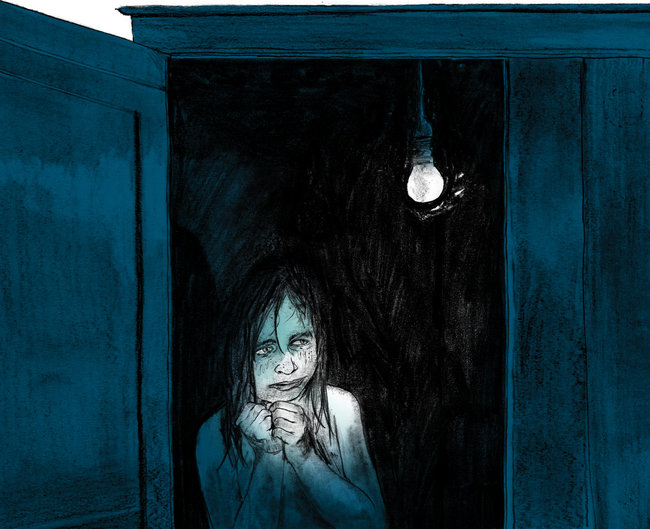Cambridge’s Luke Farrar Kickstarts fundraising for Aussie Claustral Canyon 3-D Film
  |
|
|
  |
|
|
 Warm welcome to one of the newest (oldest?) clients at the Cambridge Innovation Center…My favorite entrant in the Halloween Competition, so far. It’s by Mike Burtov, CEO at Cangrade, which offers hiring automation/psychological testing. Back story is that this guy or gal is still waiting for Netscape to load…from 5 1/4 inch floppy disks. Pleased that s/he’s in C3 (shared space on the 5th floor) rather than on another floor, where I often work, which we’ve dubbed “elderhostel” for reasons you might be able to guess.
Warm welcome to one of the newest (oldest?) clients at the Cambridge Innovation Center…My favorite entrant in the Halloween Competition, so far. It’s by Mike Burtov, CEO at Cangrade, which offers hiring automation/psychological testing. Back story is that this guy or gal is still waiting for Netscape to load…from 5 1/4 inch floppy disks. Pleased that s/he’s in C3 (shared space on the 5th floor) rather than on another floor, where I often work, which we’ve dubbed “elderhostel” for reasons you might be able to guess.
–Anita M. Harris
New Cambridge Observer is a publication of the Harris Communications Group, an award-winning PR, social media and content marketing firm based in the Cambridge Innovation Center, in Kendall Square, Cambridge, MA.
 Felt very cool in joining 500 of my closest friends at the all-CIC (Cambridge Innovation Center) Party held at Brooklyn Boulder indoor climbing center, in Somerville, on Friday night. During the day, CIC is a vibrant workplace for 500 companies and 1700 people on nine floors of two high-rise buildings in Kendall Square, Cambridge. At the party, all of that energy
Felt very cool in joining 500 of my closest friends at the all-CIC (Cambridge Innovation Center) Party held at Brooklyn Boulder indoor climbing center, in Somerville, on Friday night. During the day, CIC is a vibrant workplace for 500 companies and 1700 people on nine floors of two high-rise buildings in Kendall Square, Cambridge. At the party, all of that energy 
and many of those people were unleashed in one huge horizontal space–literally climbing the walls, doing yoga, taking photos, who knows what else. We were given the choice of drinking or climbing…
 Friends Tom, R, Michael, Kathryn….heck, almost everyone I knew– chose the former, making us, perhaps, a bit less cool?
Friends Tom, R, Michael, Kathryn….heck, almost everyone I knew– chose the former, making us, perhaps, a bit less cool?
New Cambridge Observer is a publication of the Harris Communications Group, an award-winning public relations and marketing agency located in Cambridge, MA.
Joined friends, family and other enthusiastic audience members on Saturday night, June 29, for the Boston premier of feature film “Redlegs” at the Roxbury Film Festival, at the Massachusetts College of Art.
I liked the film–which was written and directed by Brandon Harris (and executive produced by Brett Green –who happens to be my cousin). It’s about three 20-somethings trying to deal with their grief after a childhood friend is killed, in Cincinnati.
The film begins at the friend’s funeral and slowly unfolds– revealing the friends’ relationships with one another and with the victim, and where they are now, in their lives.
The friends’ actions and reactions sometimes seem inexplicable– irrational anger at one another; attempts to stay busy by playing frisby and attending sporting events; beating up a guy who challenges them; incessant use of the “F-word.” But it works because the point of the film is that they don’t know what to do or how to act–and,taken as a whole, it all expresses the chaos of grief.
I found it especially interesting to see how a 20-something director portrayed the interactions of males his own age struggling to define themselves and one another as men.
Congrats, guys!
Here’s the favorable New York Times Review: http://movies.nytimes.com/2012/05/25/movies/redlegs-by-brandon-harris-is-a-cincinnati-tale.html?_r=0 .
—Anita M. Harris
New Cambridge Observer is a publication of the Harris Communications Group, a public relations and digital marketing firm located in Cambridge, MA.

Margot , a great friend from NYC days and also my Harvard Nieman Fellowship, is a long time NPR news correspondent, and the author of Drawing Down the Moon, the classic book on Contemporary Paganism, Wicca and Goddess Spirituality. She is also the author of Heretic’s Heart, a 1960’s memoir–recently republished as an e-book.
Went to the British Consulate Tuesday morning (June 4, 2013) expecting to hear the Right Hon. Jeremy Hunt, MP, the UK Secretary of State, speak about recent changes in the British health care system–but at the start of the session, Vice Consul Anne Avidon explained that Hunt had been called to Downing Street and that she’d done her best to replace him with someone of equal or higher rank. Avidon then pulled out a life-sized cardboard photo of the Queen–commenting that “she listens a lot but doesn’t say much.”

UK Boston HM Consul General Susie Kitchens and Tim Kelsey, national director for patients and information, National Health Service Commissioning Board.
The levity continued as the Consulate team collected the results of a networking game, in which attendees had been handed scrabble letters to add to those of others at the event in order to form words related to health care. The winning word–Edata–brought five people Cadbury chocolate bars from England.
In a Q& A session with Consul General Susie Kitchens, the real speaker, Tim Kelsey, national director for patients and information of the UK’s National Health Service Commissioning Board, outlined several components of what a Consulate publication describes as “the most widespread changes in England’s National Health Service since its inception in 1948.”
One key change, effective since April 1, is that 80 percent of the UK healthcare budget (approximately $120B), has been “devolved” from the Department of Health to frontline clinicians. These clinicians form new Clinical Commissioning Groups and are responsible for designing, delivering, and paying for local health services.
Some other changes involve requiring doctors at various level to share treatment and mortality outcomes, increased patient participation in assessing their own care, and the digitization of all health care records by 2018.
The event was sponsored by UK Trade and Investment and the British American Business Council of New England.
–Anita M. Harris
New Cambridge Observer is a publication of the Harris Communications Group, an award-winning public relations and digital marketing firm based in Cambridge, MA.
Much appreciated Katie Johnson’s insightful May 27 Boston Globe article “Many Women With Top Degrees Stay Home.” It’s about a Vanderbilt University study showing that married women with degrees from the most elite colleges and universities are likelier to opt out of professional careers than are women who attended the least selective schools–and that this differential has little to do with family income.
One analyst suggests that women with degrees from elite schools feel freer than others to opt out because they think their prestigious degrees will allow them to easily transition back into the workforce.
Mebbe so–although this implies that, given the choice, all women would rather leave their jobs to stay at home with children–which I don’t for two seconds believe is true.
Based on my research for Broken Patterns, Professional Women and the Quest for a New Feminine Identity, I’ll bet the explanation for opting out is a lot more complicated than that.
In my interviews, many women told me they chose male-dominated professions because they didn’t want to live the sorts of lives their homemaker mothers led–but many had grandmothers who worked outside the home in the early 20th century. This–and the historical record– led me to posit a push=pull process in which, going back to the industrial revolution in the US, the more women left the home for paying work in one generation, the greater the pull to domesticity, in the next. That push-pull process–driven by social, technological, generational and psychological forces–is also reflected in women’s personal development along their life cycles. I believe it helps account for some of the choices–such as schools, spouses, and careers– that women make.
I’m not saying Johnson and her interviewees are wrong…Only that that women make life choices for a multitude of reasons. The Vanderbilt study points out that women who graduate from elite schools tend to marry men from similar schools. It strikes me that if both spouses pursue highly competitive careers that allow little time for family life, something’s got to give when children come along. Most often, it’s the woman.
Like Sheryl Sandberg, the Facebook COO and author of Lean-In, I am troubled by the conundrum this creates: talented women who opt out of careers, even for just a few years, may lose the opportunity to attain positions in which they can influence workplace culture–and enhance the lives of women and men of the future. On the other hand, perhaps it is not the privileged who are likeliest to push for equality–but, rather, those who have struggled to overcome barriers.
–Anita M. Harris
Anita Harris is the author of Broken Patterns, Professional Women and the Quest for a New Feminine Identity (Wayne State University Press, 1995), A new edition will soon be published; please comment below if you’d like to reserve a copy.
New Cambridge Observer is a publication of the Harris Communications Group, an award-winning public relations and digital marketing firm based in Cambridge, MA.